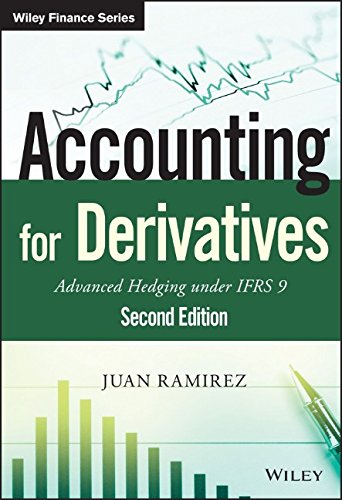

Most ebook files are in PDF format, so you can easily read them using various software such as Foxit Reader or directly on the Google Chrome browser.
Some ebook files are released by publishers in other formats such as .awz, .mobi, .epub, .fb2, etc. You may need to install specific software to read these formats on mobile/PC, such as Calibre.
Please read the tutorial at this link: https://ebookbell.com/faq
We offer FREE conversion to the popular formats you request; however, this may take some time. Therefore, right after payment, please email us, and we will try to provide the service as quickly as possible.
For some exceptional file formats or broken links (if any), please refrain from opening any disputes. Instead, email us first, and we will try to assist within a maximum of 6 hours.
EbookBell Team

0.0
0 reviewsThe derivative practitioner s expert guide to IFRS 9 application
Accounting for Derivatives explains the likely accounting implications of a proposed transaction on derivatives strategy, in alignment with the IFRS 9 standards. Written by a Big Four advisor, this book shares the author s insights from working with companies to minimise the earnings volatility impact of hedging with derivatives. This second edition includes new chapters on hedging inflation risk and stock options, with new cases on special hedging situations including hedging components of commodity risk. This new edition also covers the accounting treatment of special derivatives situations, such as raising financing through commodity-linked loans, derivatives on own shares and convertible bonds. Cases are used extensively throughout the book, simulating a specific hedging strategy from its inception to maturity following a common pattern. Coverage includes instruments such as forwards, swaps, cross-currency swaps, and combinations of standard options, plus more complex derivatives like knock-in forwards, KIKO forwards, range accruals, and swaps in arrears.
Under IFRS, derivatives that do not qualify for hedge accounting may significantly increase earnings volatility. Compliant application of hedge accounting requires expertise across both the standards and markets, with an appropriate balance between derivatives expertise and accounting knowledge. This book helps bridge the divide, providing comprehensive IFRS coverage from a practical perspective. * Become familiar with the most common hedging instruments from an IFRS 9 perspective * Examine FX risk and hedging of dividends, earnings, and net assets of foreign subsidies * Learn new standards surrounding the hedge of commodities, equity, inflation, and foreign and domestic liabilities * Challenge the qualification for hedge accounting as the ultimate objective IFRS 9 is set to replace IAS 39, and many practitioners will need to adjust their accounting policies and hedging strategies to conform to the new standard. Accounting for Derivatives is the only book to cover IFRS 9 specifically for the derivatives practitioner, with expert guidance and practical advice.